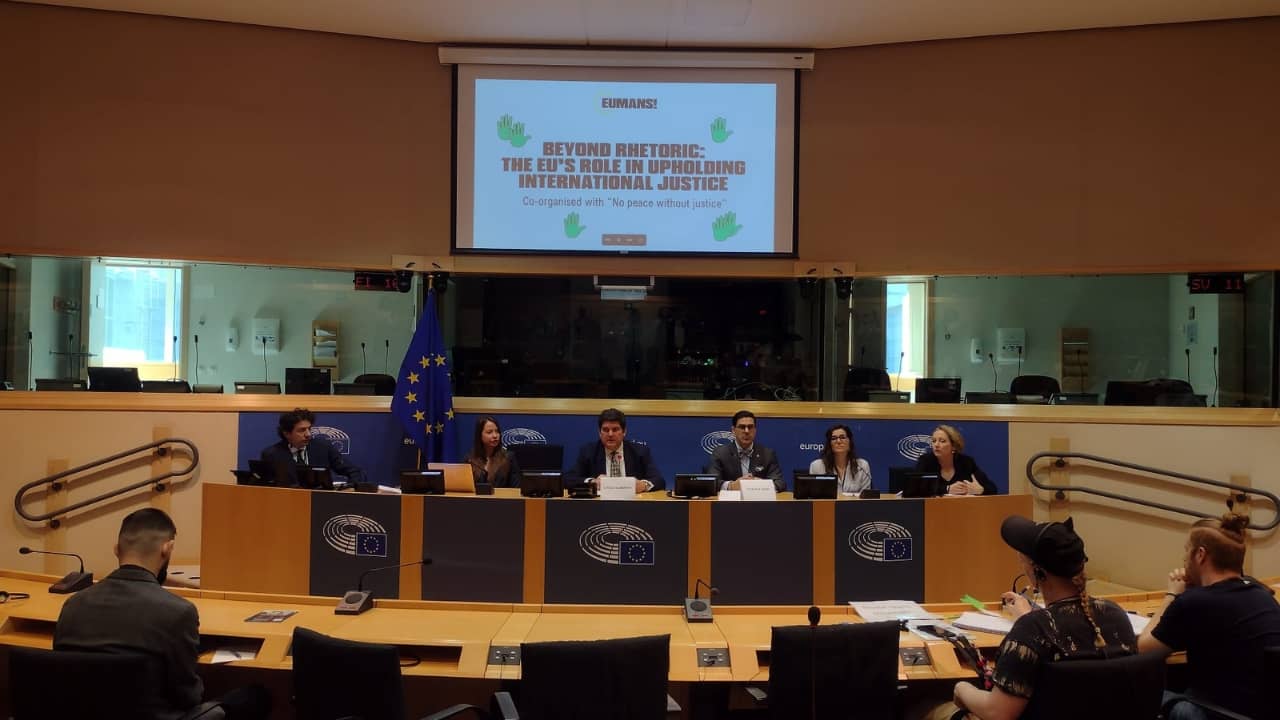
Time for NZ to Make Aggression a Leadership Crime
By Chris Finlayson, Kennedy Graham and Ross Robertson
We propose a cross-party consensus within this 53rd Parliament to adopt legislation ratifying the 2010 Kampala Amendment to the 1998 Rome Statute that would make ‘aggression’ a crime in NZ domestic law. No other action can any country take to strengthen global security at a time of high strategic tension.
Let us explain our reasoning.
The first, and fundamental, distinction is between state responsibility and individual liability in international law. Under the UN Charter it is illegal for a Member State to commit an act of aggression. If it does, the Security Council is empowered to take enforcement measures (flawed as the Council’s efficacy is with the veto). Such measures, however, are confined, even in an extreme case, to rolling back the offending Member State’s forces to within its own borders (and perhaps requiring reparation of some kind). But the leadership of the aggressor country remains immune from the reach of the Council; the UN concerns itself, in matters of peace and security, essentially with state responsibility.
Individual liability is different. Under the Rome Statute (1998), individuals are liable for prosecution by the International Criminal Court for four kinds of crime that may be committed in the context of the use of force by a State that is a party to the Statute.
The first three are crimes committed within the context of (usually military) force, namely: genocide, war crimes, and crimes against humanity. These may be committed by any individual.
The fourth is a ‘leadership crime’, whereby an individual leader of a State Party (head of government, relevant cabinet minister, relevant military force leader) may be guilty of deciding that the country will commit a ‘manifest act of aggression’ in violation of the UN Charter (an ad bellum crime). In international law, this constitutes an individual criminal offence, which can result in imprisonment of a country’s leader – either through its own domestic jurisdictional process or through the ICC in The Hague.
These two types of actions –state responsibility and individual liability – are thus different. The former may be subjectively justified, at least within one’s own country, through political fervour and personal charisma, even if an overwhelming UN majority condemns it. The latter is founded on, and confined to, objective legal prosecution and evidence. And it is the latter that will particularly concentrate the mind of any leader(s) considering military action.
State responsibility under the UN Charter has been around since 1945. Individual liability for the first three crimes has been around since 1 July
2002, when the Rome Statute entered into force and the Court acquired jurisdiction over them. The crime of aggression, however, did not become justiciable until 17 July 2018, when the Kampala Amendment entered into force. And unlike the first three crimes which apply to all 123 States that are party to the Rome Statute, the crime of aggression requires separate individual ratification. To date, only 44 parties have ratified this.
The 44 countries that have to date written into their domestic law that their leader(s) is/are criminally liable if their country commits a manifest act of aggression are concentrated in Europe (28) and Latin America (12). Of the 28 European countries, 17 are NATO members. They include Belgium, Germany, Italy, Netherlands, Portugal and Spain. Ratifying non -NATO countries in Europe include Austria, Finland, Ireland, Sweden and Switzerland.
New Zealand has not ratified the Aggression Amendment. Why not?
In 2010 at the Kampala Review Conference, New Zealand was part of the consensus that adopted Resolution 6 agreeing to make a manifest act of aggression a leadership crime. It has ratified almost all other amendments to the Rome Statute. Why not the Aggression Amendment? At no stage have the three NZ Governments (2010-17; 2017-20; 2020-2022) given any explanation.
In 2009, a member’s bill that would have made aggression a leadership crime (in advance of Kampala as some countries already had done) came out of the ballot and was given a 1st reading. The vote was 64 against and 58 in favour. Those in favour included the Labour, Green and Maori parties. National opposed on the grounds that it might confine a UN Member State from resorting voluntarily to military force in the event the Security Council was stuck by veto. But, for better or worse, that happens to be the UN Charter which New Zealand proclaims to this day as the foundation of the international rules-based order.
In 2013, the Parliamentary Select Committee on Foreign Affairs Defence and Trade recommended unanimously (four National MPs, two Labour, one Green) that New Zealand ratify the Aggression Amendment.
In July 2018 when the Amendment became justiciable within the ICC, the Minister for Foreign Affairs noted that New Zealand had supported the inclusion of the crime of aggression in the Rome Statute and had actively participated in the Review Conference in Kampala. In September of that year the Prime Minister declared before the UN General Assembly that New Zealand remains committed to do our part in building and sustaining international peace and security – to promoting and defending an open, inclusive and rules-based international order based on universal values.
In 2020, however, when the most recent amendments to the Rome Statute were ratified by Parliament, the Aggression Amendment was omitted. The official explanation was that it was ‘out of scope’ of the other intended amendments. That simply means that it remained, and remains, for the Government, either then by amendment or later through a subsequent bill, to make it within scope. The Government has not done this.
It is important to recognise that the act of making aggression a leadership crime does not alter in any way New Zealand’s state responsibility not to commit aggression under the UN Charter, which it has sought to respect for three-quarters of a century. Nor does it change the lawful use of military force – whether through authorised UN Security Council action or under the right of self-defence. It simply complements state responsibility with leadership liability. The former is the purview of the UN; the latter of the International Criminal Court.
As recently as 2 November, the UN General Assembly adopted, by consensus, resolution A/77/6 on the report of the International Criminal Court. The Assembly recalled that the Court was now able to exercise jurisdiction over all four Rome Statute crimes, including aggression which was now legally defined. New Zealand was one of the Member States to cosponsor the resolution. It simply remains, then, for New Zealand to follow through with its UN endorsement by actually making the crime justiciable in domestic law, as its actions since 2010 imply that it will.
If it is good enough for Germany and Italy, Sweden and Finland, Costa Rica and Samoa, to ratify the Aggression Amendment, it is good enough for New Zealand to do so. We did not wait for Canada or Australia before we made this country nuclearweapons-free. We should not wait now on this.
We call upon the Government to introduce legislation that would ratify the Kampala Amendment on aggression into Parliament this year, and pass it before this parliamentary term finishes in 2023.




